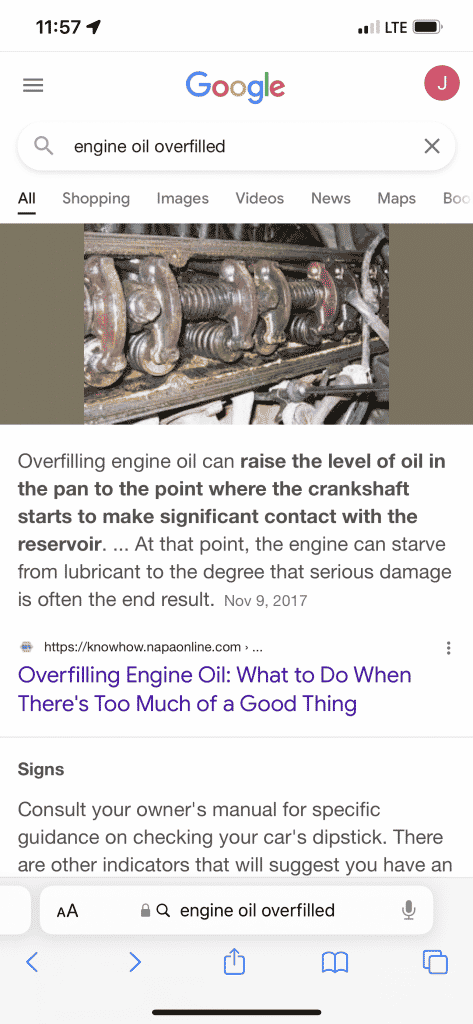Last Updated on July 8, 2022 by admin
We’ve talked about Google info boxes in the past. Many people have opinions on them but, love them or hate them, they’re here to stay. Should you trust them, though? That’s what we’re going to explore in this article. Read on…
All of us have had it happen… You ask a question to our friendly ubiquitous search giant and it kindly returns an info box with what seems to be exactly the answer you’re looking for. You dutifully report to your half-inebriated friends at the bar that you were right, you collect your winnings of a free drink, and promptly forget the answer…and probably the question you asked as well. But can you really trust Google’s info boxes to provide the correct answer? Maybe not. Let’s explore why.
(ASIDE: I’ve written an article on whether or not you should trust any Google search results but we will assume for the purposes of this discussion that Google does return good results.)
Let me state one thing right up front. The code and algorithm and systems that make up the internet search feature we call “Google” are amazing bits of technology. The moment you push “search” the system as a whole scours the internet and comes up with millions of results in the blink of an eye. (…another shameless plug for an article I wrote on how Google returns search results so fast.) Likewise, the engineers and developers that put this system together are nothing short of magicians in my mind. These are some of the smartest people around, developing some of the most useful tech in the world, and giving it away for free. (Insert argument about “free” means the user is the product and yada yada yada, yeah I get it…) I’m not knocking Google for what it does or the engineers who make it do that. It’s a mind-bogglingly complex system and the fact that it works at all is a triumph. OK…moving on…
The Background
Because of a whole list of reasons that are not important here, I added about a half-a-quart too much oil to my vehicle. I’d heard that too much oil in your vehicle can be damaging to the engine in much the same way that not enough oil can be. (Read on to find out why!) Not wanting to blow up the engine in my car, I did what any sane rational person living in a first world country would do—I pulled out my smartphone and consulted the internet for its collective wisdom. I was confused by what I saw.
The Findings
I searched for “engine oil overfilled.” Here is a screenshot of the info box that was returned.

Screen Shot of Google Info Box
In case the image doesn’t appear for you, the info box that was returned had this to say:
Overfilling engine oil can raise the level of oil in the pan to the point where the crankshaft starts to make significant contact with the reservoir. … At that point, the engine can starve from lubricant to the degree that serious damage is often the end result.
If you stopped reading at just the info box answer you see above, you may be left thinking that an engine oil overfill situation is no big deal. After all, the engine bits are designed to be doused in oil. Why would the simple fact that the crankshaft is touching the oil starve the engine of lubricant? If you read the full article linked here, however, you will learn what happens. Here is a quote from the article:
Overfilling engine oil can raise the level of oil in the pan to the point where the crankshaft starts to make significant contact with the reservoir. Since it moves so fast, it can turn the oil from a liquid into a froth that the pump is no longer able to siphon and distribute. At that point, the engine can starve from lubricant to the degree that serious damage is often the end result.
Note the portion of the text emphasized in red. That is the key bit of information that was left out of Google’s info box by the convenient ellipsis. It just so happens that the one omitted sentence is the critical piece of information that is required for a person to understand the whole scenario. (If you still don’t understand, I’ll explain in more detail at the end.)
So, in this case and possibly many others, Google is potentially leading people to an inaccurate conclusion with the way it has presented the info box.
The Conclusion
If you want a one-phrase takeaway from this article it’s this. Don’t believe everything you read on the internet!
As I said, Google engineers and developers are wizards at developing and providing this search tool for our use. Like any tool, it has its shortcomings. It’s unfortunate that, in this case, the info box is presented as fact and we are encouraged to blindly accept that info box answer. I caution you to be more critical of the exact information you’re getting in these cases…unless it results in a free drink for you in which case stick to the tried and true axiom, Google Never Lies! 😉
The Longer Engine Oil Explanation
The oil in your vehicle’s engine sits in a pan at the very bottom of the engine. That pan has an open top with a bunch of quickly-spinning engine bits just above it. That oil is pumped from the pan to the top of the engine where gravity pulls it down through all the important bits, lubricating and cooling them in the process, and the oil drips back into the open-topped pan waiting to be pumped up once again. If you have too much oil, then the oil that’s resting in the pan may come into constant contact with all the quickly-spinning engine bits. This by itself isn’t a problem but the spinning parts can cause the oil to froth up and turn into foam. Think of having a large bowl of egg whites and whipping the crap out of them with a hand mixer. The eggs turn to foam…so will the oil. Once the oil is in a foam-like state then the oil pump cannot pump it up to the top of the engine for lubrication. That’s basically the same thing has not having any engine oil in the first place—everything overheats, pistons seize up, you get a huge auto-repair bill. That’s why, I’ve since learned, there is a “max fill line” on your engine oil dipstick.

Leave a Reply